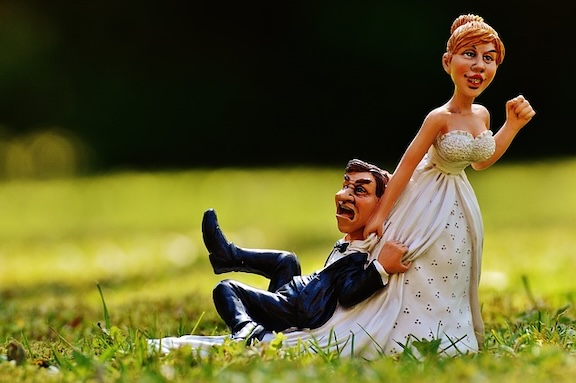Do You Chase When Someone Withdraws?
By Dr. Margaret PaulJune 20, 2011
Do you find yourself chasing after someone when he or she withdraws from you? How do you feel when you do this, and what is generally the result?
 A member of our website asked this question in our advice section:
A member of our website asked this question in our advice section:
I've read several of the articles on the site, but have not seen anything mentioned about "chasing" after someone who is pulling away in a relationship. That has to be a form of protection against deeper feelings, though, right? If someone is pulling away and the urge to chase after them comes up, what is the best thing to do in this situation? Thanks!
I know exactly what this woman is going through, as I used to go through the same thing. When a man I felt connected to would withdraw, shut down, or pull away in any way, I would feel a sense of panic. In my panic, I would convince myself that by being a certain way - attractive enough, sexy enough, nice enough, right enough, or convincing enough - I could get him to reconnect with me.
Now I know that the panic over another disconnecting from me was coming from my own disconnection from myself.
I used to disconnect from myself right at the beginning of a relationship, making his feelings more important than my own. I would put my own feelings - my inner child - in a closet, and instead take care of his inner child. My hope was that if he felt loved enough by me, he would take my inner child out of the closet and love her. I was abandoning myself by caretaking him, hoping to get the love from him that I had no idea how to give to myself.
Because I didn't know how to love myself, I was emotionally dependent on my guy to feel lovable and worthy. Hence, the panic when he would leave - taking my whole sense of self-worth with him.
The question asked is: What is the best thing to do in this situation?
The Best Thing to Do
The best thing is to let go and take loving care of yourself. But this is easier said than done.
There are a number of things I had to learn before I could do the best thing for myself:
- I had to accept that I had no control over how he felt about me, no matter how much I chased him, or how wonderful I tried to be. I recently read this on another site (http://stepperswisdom.blogspot.com/):
Codependent's Serenity Prayer
God grant me the serenity to accept the people I cannot change,
the courage to change the one I can,
and the wisdom to know it's me.
~Author Unknown
- I had to learn how to take 100% responsibility for my own feelings of worth and safety, joy and pain. And before I could learn this, I had to accept that my feelings were, in fact, my responsibility and not someone else's. I had to accept that I was the cause of my anxiety, depression, panic, guilt, anger and shame, and that I had to learn to manage the core painful feelings of life - loneliness, heartache, heartbreak, grief and helplessness over others.
- I had to establish a strong connection with my personal source of spiritual guidance in order to access the love that my inner child needed. As long as I was making a man my source of love, I was emotionally dependent, continued to panic, and continued to chase when he withdrew.
This pattern continued with my ex-husband for the first 20 years of our marriage. He would withdraw and I would chase, desperate to not feel the loneliness and heartache of his disconnection from me. Then, thankfully, spirit brought us Inner Bonding and I learned how to be loving to myself. This has made all the difference.
Heal your relationship with Dr. Margaret’s 30-Day online video relationship course: Wildly, Deeply, Joyously in Love.
 Send this article to a friend
Send this article to a friend  Print this article
Print this article  Bookmarked 17 time(s)
Bookmarked 17 time(s)
| Related Articles |
|---|
| Neediness |
| Control, Helplessness, and Love |
Comments
| Author | Comment | Date |
|---|---|---|
| Join the Inner Bonding Community to add your comment to articles and see the comments of others... | ||

Daily Inspiration
What question governs your waking moments? Are you unconsciously governed by the question, "How can I have control over feeling safe?" Or, are you consciously guided by the question, "What is loving to myself and others?" The first question leads to anger, blame, withdrawal, numbness, resistance, compliance and defensiveness. The second question leads to connection with your spiritual Guidance and the loving evolution of your soul.
By Dr. Margaret Paul

 Share with Del.icio.us
Share with Del.icio.us Share with Digg
Share with Digg





